Do you know your child’s love language?
Find out more about each of the five love languages, and how to use them to connect with your child!
This post may contain affiliate links. I may earn compensation when you click on the links; at no additional cost to you. Please see the disclosure policy for more information. All opinions expressed are my own.
Talk of the 5 Love Languages
I’m sure that you have heard about the popular topic of the 5 love languages, and just like you, your child has a distinct love language. According to best selling author of the series, Gary Chapman, each person has a primary love language. Using this theory, discovering your child’s love language may make it easier for you to understand and connect with your child on a deeper level.
Get your copy of the book!
What are the 5 love languages?
The 5 Love Languages are Acts of Service, Gifts, Physical Touch, Quality Time, and Words of Affirmation. I go into further detail on each love language, along with ways to fulfill the love language of your child.
1. Acts of Service
Showing love to your child by doing loving things
Think about how your child reacts to you helping them or showing them something. This particular love language may be harder to detect with children, since parents are already performing many acts for their child. But take notice if your child shows extra interest or admiration for you doing things for and with them.
Your child may speak this love language if:
- They ask for help to learn a new skill
- They look for your guidance in working on a project for school
Ways to fulfill this love language:
- Play with them. Help them build legos, color with them, play dolls with them.
- Make them them their favorite breakfast.
- Teach your child about helping others through volunteering.
- Help to fix their toys when they break them.
- Start a “birthday dinner” tradition where you make their favorite meal.
2. Gifts
Giving gifts to your child that lets them feel extra special and loved
Gift giving just because, outside of birthdays and holidays, can make children feel extra special. If this is your child’s love language, receiving gifts can make them feel that this gesture makes them extra special in the givers’ eyes.
Your child may speak this love language if:
- They look for rewards over hugs
- They hope to be recognized with presents over attention
Ways to fulfill this love language:
- Get them a favorite toy they have been wanting.
- When away from home, mail a small package to your child.
- Make a special treat for them.
- Give them personalized gifts that have their name on them.
- Place a small token of love in your child’s lunchbox.
3. Physical Touch
Physically showing love and care to your child
Most children enjoy receiving physical love from their parents. If this is your child’s love language, they may ask and need frequent forms of physical touch to make them feel comfort and ease from the physical touch of their loved ones.
Your child may speak this love language if:
- They ask for hugs or kisses frequently
- When they are sad, they would rather be held than speak about their issues
Ways to fulfill this love language:
- Cuddle up on the sofa together and watch a movie or read.
- Hug and kiss your child every day and night.
- Stroke your child’s hair or rub their back when they are upset.
- Create a special signal that you and your child can share, like a handshake or a finger hug.
- Read to your child with them on your lap.
4. Quality Time
Spending time with your child to show how much you care and love them
A child whose love language is quality time is simply looking for your undivided attention. Time that is solely focused on spending time with them one on one.
Your child may speak this love language if:
- They ask for more solo stories at bedtime
- They make attempts to seek out your attention
Ways to fulfill this love language:
- Make bedtime extra special with stories and a routine.
- Spend time helping your children with a project they are working on.
- Schedule a “date” with each of your children individually and make it a priority.
- Create family time where you play games or do outdoor activities together
- Take your child out for a treat after school.
5. Words of Affirmations
Telling your child often how much you love and care about them
Hearing simple, loving phrases from their parents makes them happy. If this is your child’s love language, then they appreciate and respond well to hearing you compliment, praise and speak highly of them.
Your child may speak this love language if:
- They ask for reassurance that they are loved
- They seek compliments on their physical appearance
Ways to fulfill this love language:
- Put a note in their lunchbox. A simple heart on a sticky note goes a long way.
- Tell them how much you love them everyday.
- Tell them how proud you are of them often.
- Tell them some of the things you love about them.
- Praise them often.
What to take from this
Just like anything that relates to your child, the most important thing to take from this is that every child is different. Every child receives and displays love in their own unique ways, as most do. Remember that this is not an all end to how your child receives and displays love; children just like adults can have multiple love languages. Just use this as a guide as to find the best ways to connect with your child!
Other parenting articles you may find interesting and helpful:
15 Montessori parenting books parents of young children should read
Valuable conscious positive parenting resources to help you tame your child’s tantrums
5 basic Montessori principles that can compliment your parenting style
How to effectively use positive discipline to raise well nurtured children
Time in-the positive alternative to time out
So do you know what your child’s love language is? I would love to hear your thoughts in the comments below!
Until next time!
Anitra J.

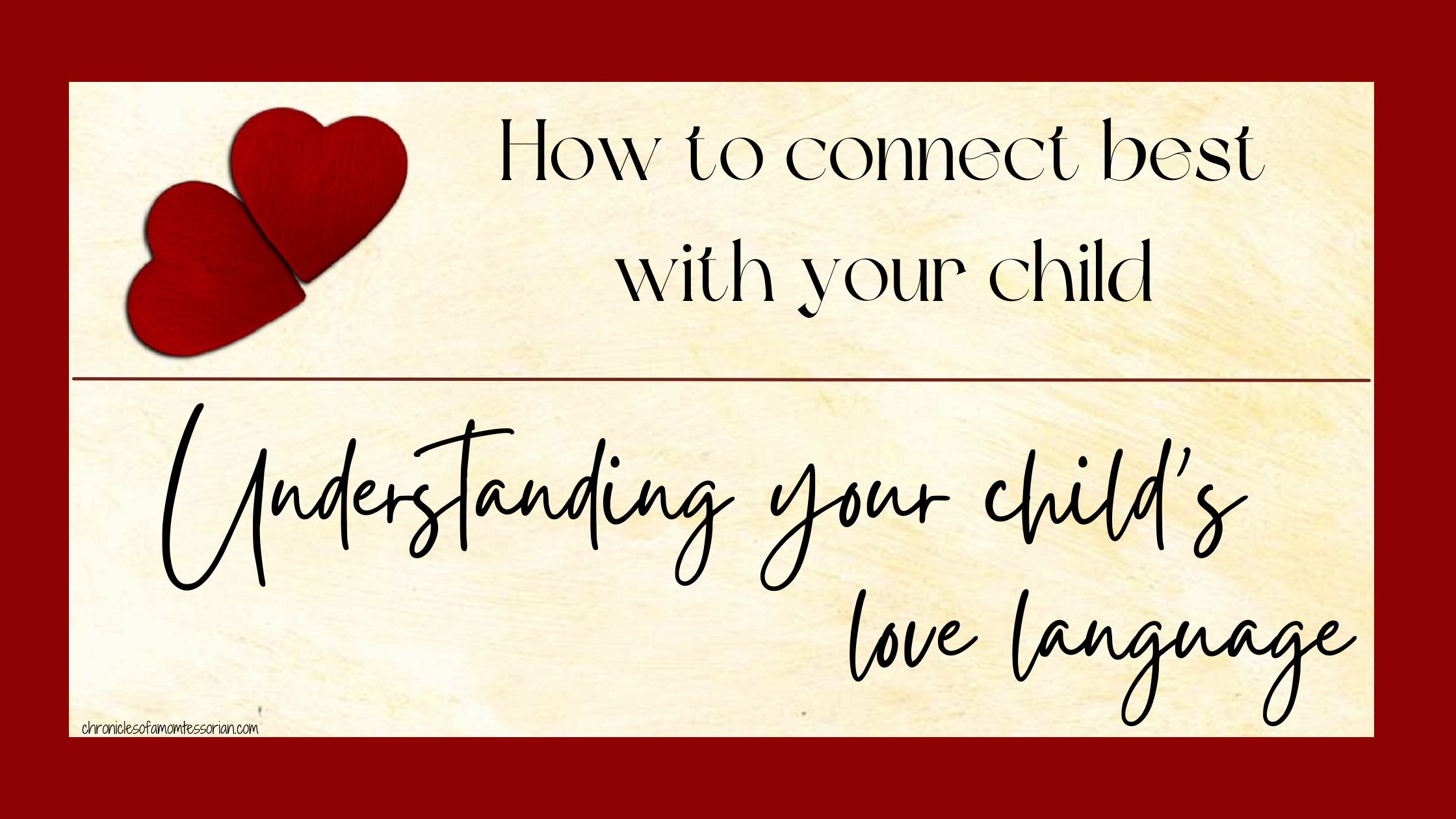
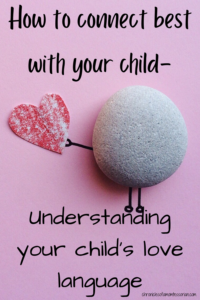
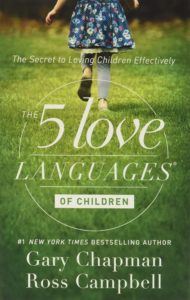





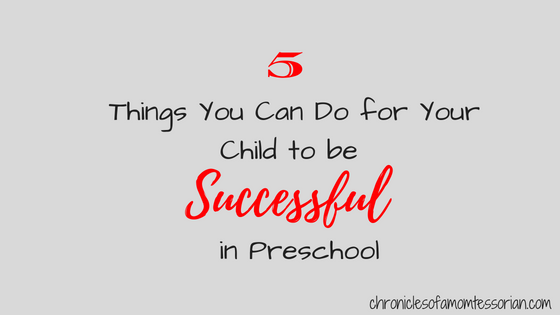
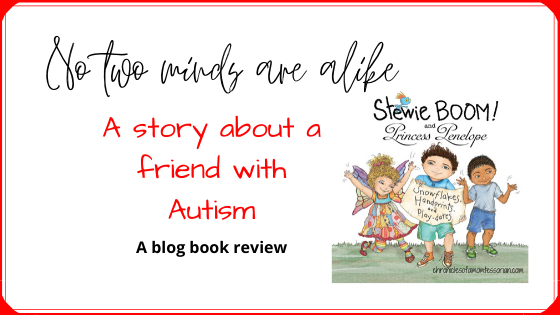
Yes, we enjoy discussing the various love languages. It is help for the kids to also understand why the respond to different things.
I love this both of my girls are definitely gift giving lol they have been spoiled from day one
For their secondary I would say one is….words of affirmation and the other kid is quality time.
I never thought about their love language until this post so thank you for giving me something to think about
I haven’t heard about the 5 different love languages before so thank you for sharing.
I’m pretty sure our daughter’s love language is acts of service because she’ll ask us to help her with things she already can do, like putting on her shoes. But quality time too as she does ask us to play with her.
I feel like all of the 5 love language has such a huge impact on each of their own.
Thanks for this detailed post.I feel quality time and Physical touch have great impact on kid’s personality.
We’re big love language fans over here! I love finding new ways to express other people’s love language because it’s easy to default to my own language when trying to express that I care.
Each of my daughters has a different love language. My younger one is an act of service and that’s really her.
I love this so much! I have never thought about the love language idea with my child! This really makes me want to take more note of how he is expressing/asking for love. Gives me a whole new perspective. And really appreciate the specific example you give to pinpoint their love language and ways you can communicate with it.
Great ideas! Love languages and each child’s color temperament are always fascinating to me.
I love this. I recently started trying to figure out my 9 year old love language and it’s already benefited our relationship and working on her sass!
These are all great ideas. Then observe how your child treats others. Are they learning to treat others with the same respect and kindness.
I never thought about my kids having their own love languages! How helpful this will be from here on out! Thanks for sharing this!
I love these! I have 5 kids and they have different love languages. I totally enjoyed reading and learning from your post. Thank you for sharing this! 💕
As the mom of an almost 12yo boy, this post found me at the time I needed it most. Today was a rough day at school for him (he got his momma’s mouth and sass). This post (love languages) will be part of a deeper conversation. Thank you!
Let’s fill up some “love buckets”! I have read Gary’s book and took several classes, but it is such a nice reminder to have. I actually just realized that my eldest’s love language is acts of service and I have take the class like 3 times! Also thanks for the ideas on how to fill their buckets. 🙂
This is a nice summary of this. It gets so complicated when it’s feet on the ground because I get hung up on “what am I teaching him if I give him this, etc” I don’t want my kids to equate love with getting stuff or to only think that I love them depending on the attention I can give them. But then I remind myself that this is just about loving them and showing them. They can learn those lessons in other ways!
Thank you for sharing!
My daughter is just 4.5months old and I’m actively seeking to learn how best to love her and treat her with respect as she grows. There’s lots of great information here!
Children are such natural little teachers aren’t they? If we just listen or pay closer attention we can learn so much from them. I love how you broke the 5 love languages down as it pertains to children and gave examples of their cues as well as what we can do to love them in that manner. Thank you for sharing this.
Did you ask your children to take the online love language quiz? I did, and I was kind of surprised by the results for my 4. Love this post, btw!
I love this concept! Definitely something I will come back to as my girl gets older.
I feel like my kids want all of these, so I do them all. But, working on giving them each more 1 on 1 time though.
We had no idea about “love languages.” Thank you for explaining and sharing.